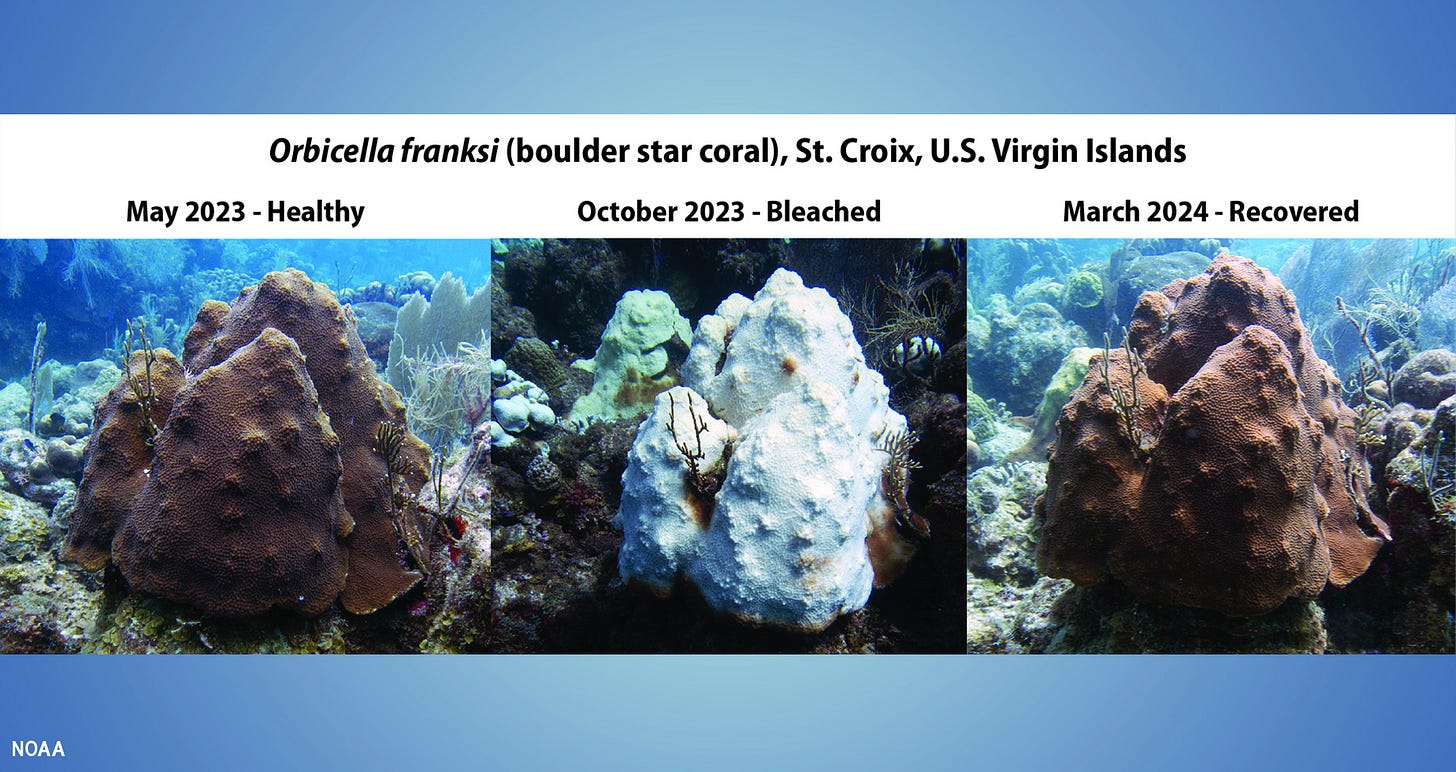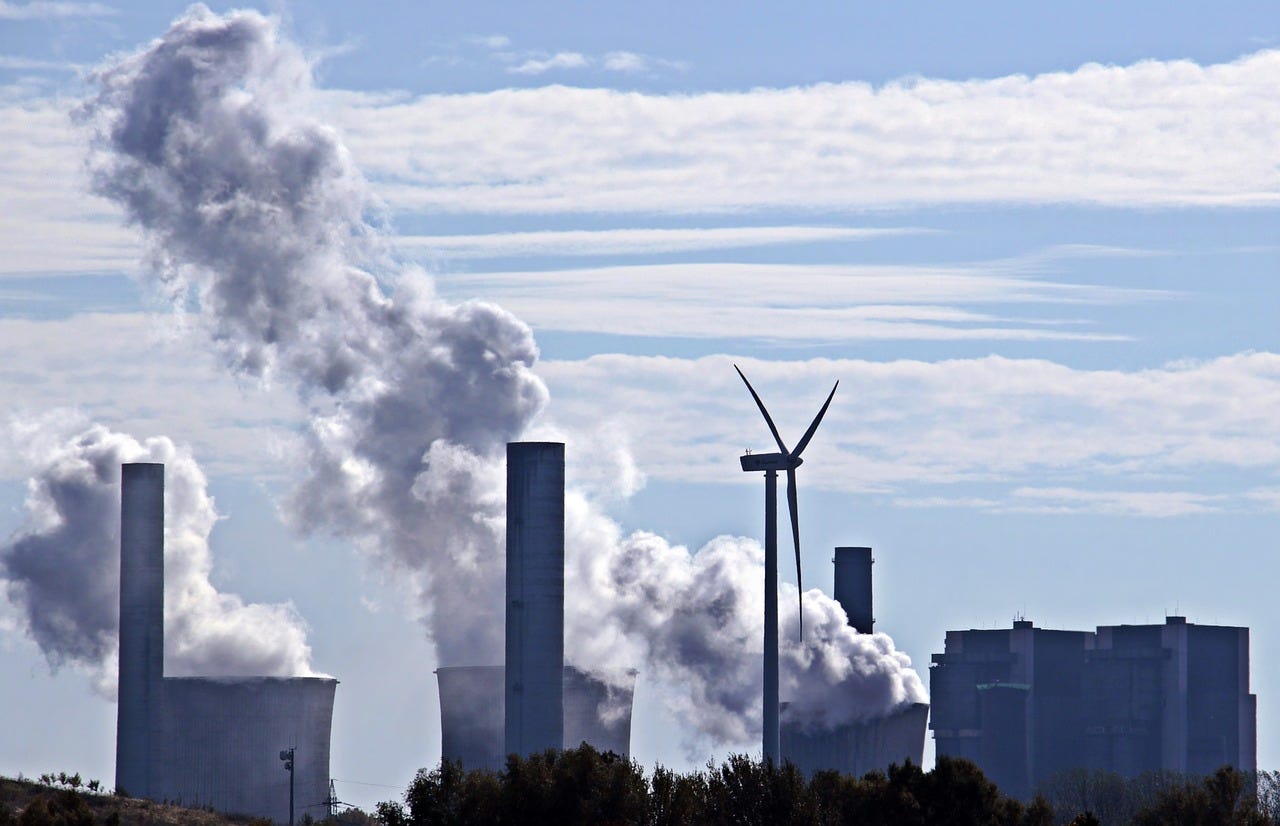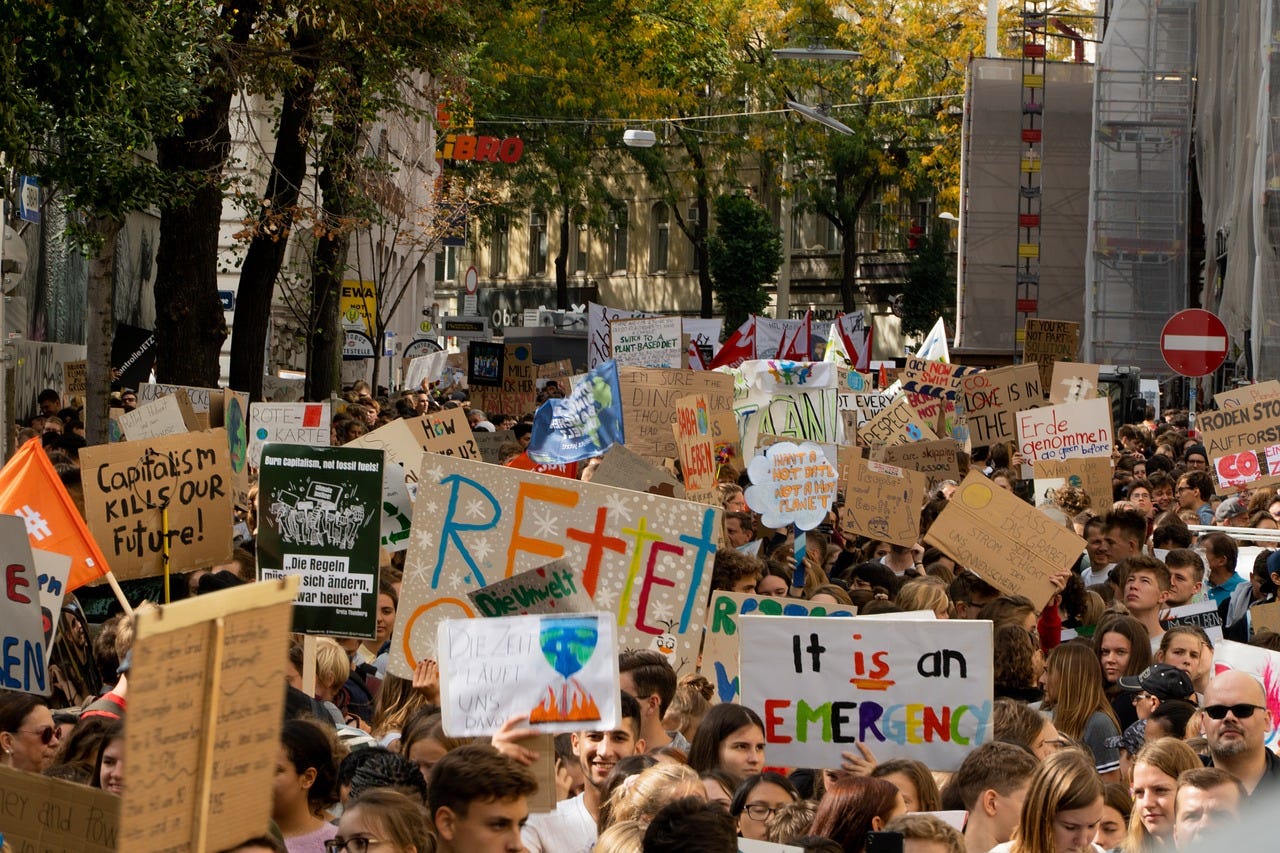The cost of climate change, at $38 trillion, is still too low
Welcome to Callaway Climate Insights. Please enjoy and share with your colleagues. And happy 54th Earth Day on Monday to those who celebrate.
Today’s edition is free. To read our insights and support our great climate finance journalism five days a week, subscribe now for full access.
The new EV you didn’t see coming: Boston Dynamics has retired its hydraulic Atlas robot model, and introduced the fully electric version of Atlas, above. Its first job will be at a new Hyundai manufacturing facility. Photo: Boston Dynamics.
When tech CEOs started becoming billionaires about 20 years ago, we used to play games in the newsroom to describe how much $1 billion actually is. One of my favorites was that if you owed me $1 billion and you paid me $1,000 a day — a day — from the day Christ was born, you’d still own me more than a quarter of the money.
In the past five or six years, those numbers have soared into the trillions, usually with regard to government spending packages, lofty stock valuations, and economic projections. No surprise then that the latest attempt to put a price tag on the impact of global warming — by Germany’s Potsdam Institute in Nature magazine — came in at $38 trillion. Per year.
The staggering number is so large that it is, of course, impossible to break it down into anything approaching accuracy, but it serves to get attention, which is the point. Climate change’s true cost to humanity, measured in lives, loss of species, the collapse of environmental systems — and ultimately, war — will be far greater.
But it’s useful to try to monetize it, as Nature did along with two other major reports this week, summarized below. Nothing turns the head of investors, bankers, and government leaders, like a potential financial loss. The loss in U.S. financial markets during the great financial crisis of 2007 to 2009, was $8 trillion, by comparison.
As we celebrate the 54th Earth Day on Monday, we are moving into an era when the impact of global warming will be felt across financial markets and economies. The numbers will get more accurate as they add up. And they will begin to break down into losses far more personal.
Don’t forget to contact me directly if you have suggestions or ideas at dcallaway@callawayclimateinsights.com.
Follow us . . . .
Twitter | LinkedIn | Facebook | Instagram
Just how 'woke' is Vanguard?
. . . . It has increased its stake in Exxon Mobil XOM 0.00%↑ shares almost every year for the past two decades, yet mutual fund index giant Vanguard is still one of the villains of the anti-ESG right, suffering penalties and bad publicity from politicians in Texas and Florida, writes Mark Hulbert. Vanguard, like BlackRock BLK 0.00%↑ , another whipping boy, has increased its stake as its passive index funds have grown and the oil giant’s weightings have increased in various stock indexes. The confusion casts another pall over the idea of divestment, which some activists want to see from finance giants holding oil shares. Hulbert cites a new study about how that’s working and has a surprising conclusion . . . .
Thursday’s subscriber insights
Calculating the cost of climate change
. . . . Attempts to calculate the economic cost of global warming are starting to roll in, with banks, economic institutes and financial regulators all taking various stabs at a number that is likely too big to accurately predict. Three of the most jarring estimates came out just this week. We take a look at the uh, lowlights. Read more here. . . .
How your old cell phone could help the climate transition
. . . . Got an old cellphone sitting in your drawer? Or a lapsed laptop? Tempted to throw them out? Well, to build all of the solar panels, wind turbines, electric vehicle batteries, and other technologies necessary to fight climate change, the metals in them are needed. But so much end-of-life electronics end up not being recycled. A report has the staggering details. Read more here. . . .
From cannons to cognac, the iconic history of the French 75




. . . . First concocted in Paris’ opera district as a salute to a new Great War cannon, France’s iconic cocktail has had a long and storied history, writes Jack Hamilton in a new book about the drink. As Callaway Climate Insights salutes the 54th Earth Day on Monday, we can think of no better tipple — and iconic story — to celebrate with. A delight for all cocktail aficionados . . . .
Editor’s picks: Global coral bleaching event; plus, Apple recycles with AI

NOAA confirms 4th global coral bleaching event
The world is currently experiencing a global coral bleaching event, according to NOAA scientists. This is the fourth global event on record and the second in the past 10 years. NOAA on Monday said bleaching-level heat stress, as remotely monitored and predicted by NOAA’s Coral Reef Watch (CRW), has been — and continues to be — extensive across the Atlantic, Pacific and Indian Ocean basins. CRW's heat-stress monitoring is based on sea surface temperature data, spanning 1985 to the present, from a blend of NOAA and partner satellites. “From February 2023 to April 2024, significant coral bleaching has been documented in both the Northern and Southern Hemispheres of each major ocean basin,” said Derek Manzello, NOAA CRW coordinator. “As the world’s oceans continue to warm, coral bleaching is becoming more frequent and severe,” Manzello said. “When these events are sufficiently severe or prolonged, they can cause coral mortality, which hurts the people who depend on the coral reefs for their livelihoods.” This global event requires global action. The International Coral Reef Initiative (ICRI), which NOAA co-chairs, and its international members are broadly sharing and already applying resilience-based management actions and lessons learned from the 2023 marine heatwaves in Florida and the Caribbean. Read more here.
Apple uses AI to boost recycling
Apple CEO Tim Cook says the company has been using artificial intelligence to achieve its carbon neutrality goals. “We would not be able to recover the level of material that we do today for recycling without AI,” Cook said recently at the annual China Development Forum in Beijing. “I mean, it’s already fundamental in our calculation.” According to reports from Bloomberg, Cook added, “And I think it provides an enormous tool and a toolkit for every company that’s wishing to be carbon neutral or to lower their emissions by a substantial amount.” Apple AAPL 0.00%↑ has set an ambitious goal (which it calls Apple 2030) to make every product carbon neutral by the end of the decade, including the entire global supply chain and the lifetime use of every device Apple makes. Last year, it announced its first-ever carbon neutral products in the new Apple Watch lineup. Innovations in design and clean energy have driven dramatic reductions in product emissions of over 75% for each carbon-neutral Apple Watch, the company said.
Latest findings: New research, studies and projects

Using generative AI to improve scenario planning
Businesses are increasingly leveraging strategic foresight and scenario planning to navigate uncertainties stemming from climate change, global conflicts, and technological advancements, write the authors of new research titled Use GenAI to Improve Scenario Planning. From the abstract: “Traditional methods, however, struggle with identifying key trends, exploring multiple scenarios, and providing actionable guidance. Generative AI offers a robust alternative, enabling rapid, cost-effective, and comprehensive contingency planning. This AI-driven approach enhances scenario creation, narrative exploration, and strategy generation, providing detailed, adaptable strategies rather than conclusive solutions.” This approach demands accurate, relevant data and encourages iterative refinement, transforming how organizations forecast and strategize for the future, according to this paper in the Harvard Business Review. Authors: Daniel J. Finkenstadt, Wolf Stake Consulting LLC; Tojin Eapen, Center for Creative Foresight; The Conference Board; Jake Sotiriadis, Independent; Peter Guinto, Independent.
More of the latest research:
Words to stay alive by . . . .
“Living your life to the fullest does not have to involve selfies with bison.” — National Park Service.





